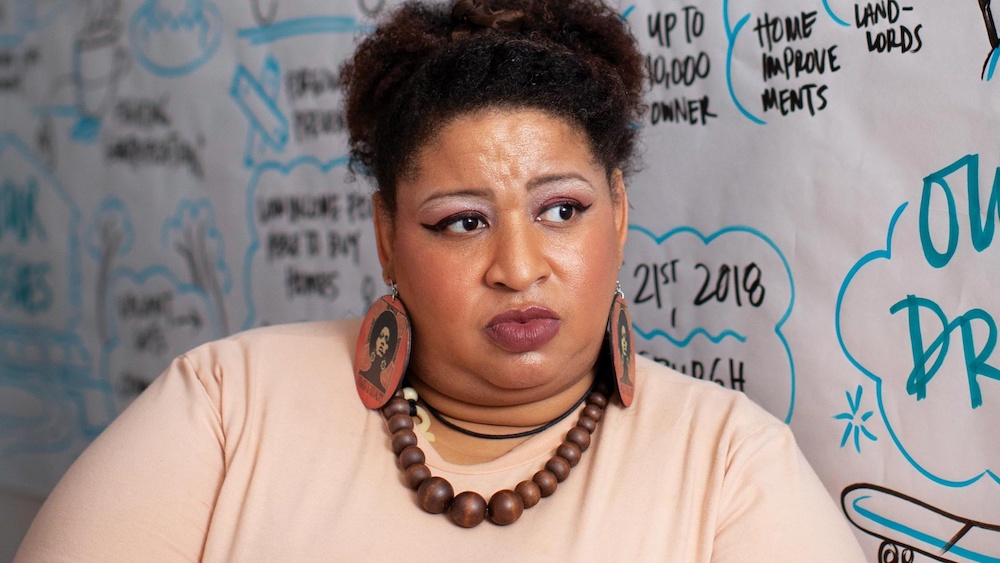If you’re interested in sharing your opinion on any cultural, political or personal topic, create an account here and check out our how-to post to learn more.
____
I’ve lived in Pittsburgh public housing for most of my life. Like much of America right now, our city has a housing crisis. There aren’t enough affordable places to live here, and every day in our city alone, up to 10 Black folks get pushed out of their homes. Now, with COVID-19 quickly exacerbating health and financial burdens for our families and communities, ensuring everyone has a place to live — as well as expanding health care access and offering comprehensive economic relief — is more urgent than ever.
It’s not just here: this is a national affordable housing crisis that affects Americans, and especially Black and brown people, in every corner of the country from rural areas to urban areas and small towns. Nearly 40 million families spend more than 30% of their income on housing, more than 10 million people spend over 50% and more than 77 million Americans live in homes that contain serious health and safety hazards. Families don’t live in unsafe housing by choice — we do it because we can’t afford safe places to live.
That’s why in 2017, we decided to do something about it. First, we at Pittsburgh United advocated for, passed and implemented a Housing Opportunity Fund with the city's Affordable Housing Taskforce. Next, together with our coalition partners at Lawrenceville United, we won a pilot program that requires 10% of new developments in Lawrenceville — a key neighborhood in Pittsburgh — to be affordable units. We call it “inclusionary zoning.” It was the first mandatory policy in the state, and now has the potential to become a permanent zoning policy in one of our city’s hottest markets.
Victories like ours show we can develop our cities without pushing out communities who’ve lived here for decades. It’s a model for our city, state and nation — but it’s still just a start. We need national, comprehensive housing justice policy solutions that protect renters and homeowners at the national level.
Housing is a racial justice issue. African American homeownership rates are at a 50-year low, as redlining and housing discrimination continue nationwide. Rental rates have a shameful disparity, too: minimum wage doesn’t cover rent for a two-bedroom apartment in any county in the United States and people of color are nearly doubly likely to be paid poverty wages as white people are. Black people are also disproportionately more likely to experience homelessness, comprising some 40% of the nation's 500,000 homeless people, despite only being 13% of the total population.
And yet, as Donald Trump pretends to care about Black people, his housing department is rolling back affordable housing for us.
Trump’s Department of Housing and Urban Development (HUD) is actively pushing racist housing policies, dismantling housing protections and allowing corporate real estate developers free rein. As I write this, HUD is attempting to repeal the Affirmatively Furthering Fair Housing (AFFH) rule, an Obama-era law that provides guidance, and funds, to undo racist housing legacies nationwide.
We need to weigh in now to push HUD to cancel this rollback of this rule that protects us from housing discrimination. Trump’s HUD has done enough harm already, we simply can’t afford more.
Trump’s replacement will have their work cut out for them: to strengthen and enforce fair housing laws currently under attack, while dismantling racist barriers to affordable housing.
I’ve been working alongside dozens of housing justice organizers to create a bold new plan for housing. Recently, we met in DC to protest Trump’s racist HUD and announcing our national vision for housing justice.
Here’s the plan: first, we need 12 million new affordable housing units — built by people earning a living wage — in the next decade. These units should be controlled and owned by the communities in which they exist, so the money can’t be hijacked by Wall Street investors.
Next, we need a federal fund to rehabilitate the 30 million unsafe homes across America that fail to meet basic safety standards. After that, we need national universal rent control and just eviction laws alongside federal investment in community-controlled funds to help people stay in their homes. It’s time for an all-out national reform to prevent whole communities from being thrown out.
Finally, and this is important: we are calling for reparations for those harmed by racist housing policies that for generations have cut Black and brown families out of opportunities to build wealth and stability.
Affordable housing is the foundation for healthy, safe and sustainable communities. America desperately needs housing, and in communities across this country we are doing the work to get it. It’s time for Congress, and Trump’s replacement, to join us.
____
Celeste Scott is the Housing Justice Organizer for Pittsburgh United.
